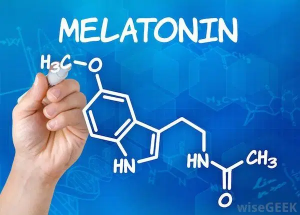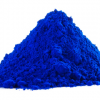
Melatonin has recently been shown to reduce IL-1β secretion and attenuate inflammasome-associated vascular disorders by improving endothelial leakage and suppressing NLRP3 inflammasomes
Melatonin inhibits inflammasome-associated activation of endothelium and macrophages attenuating pulmonary arterial hypertension
Cardiovascular Research, Oxford Academic
https://academic.oup.com/cardiovascres/advance-article-abstract/doi/10.1093/cvr/cvz312/5644338
This also means that if a patient, regardless of age, has adequate melatonin, the infectiousness of COVID-19 will be greatly reduced, and the chances of developing ARDS/ALI significantly diminished. Melatonin is the reason why children under the age of 9 seldom exhibit severe symptoms. In fact, children may exhibit mild or even no symptoms at all, even though they have been infected by SARS-CoV-2
Frequently Asked Questions and Answers: Coronavirus Disease-2019 (COVID-19) and Children
https://www.cdc.gov/coronavirus/2019-ncov/specific-groups/children-faq.html
Melatonin was shown to inhibit NLRP-3 inflammasomes in mice with myocardial septic conditions, transforming severe myocardial inflammation into milder symptoms, preventing cardiac failure, and significantly enhanced survival rates of septic mice.
Melatonin administration to wild-type mice and nontreated NLRP3 mutant mice share similar inhibition of the inflammatory response during sepsis – Rahim – 2017 – Journal of Pineal Research – Wiley Online Library
https://onlinelibrary.wiley.com/doi/abs/10.1111/jpi.12410
Melatonin attenuates sepsis-induced cardiac dysfunction via a PI3K/Akt-dependent mechanism | SpringerLink
https://link.springer.com/article/10.1007%2Fs00395-015-0526-1
Melatonin Volt et al. showed that acute administration of melatonin could counteract severe inflammatory responses.
Same Molecule but Different Expression: Aging and Sepsis Trigger NLRP-3 Inflammasome Activation, a Target of Melatonin
PubMed
https://pubmed.ncbi.nlm.nih.gov/26681113
In rodent models of acute respiratory distress syndrome (ARDS), combined treatment of melatonin and mitochondria significantly attenuated progression of ARDS
Systemic combined melatonin–mitochondria treatment improves acute respiratory distress syndrome in the rat – Sun – 2015 – Journal of Pineal Research – Wiley Online Library
https://onlinelibrary.wiley.com/doi/10.1111/jpi.12199
The critical function of suppressing cytokine storms to prevent progression of acute respiratory distress syndrome (ARDS) and respiratory failure in infected patients was clearly demonstrated in a study by Huang et al. (2019). Co-treatment of these infected rodents with melatonin and an antiviral drug significantly increased their survival rates compared to mice treated only with antivirals alone.
Melatonin possesses an anti-influenza potential through its immune modulatory effect
ScienceDirect
https://www.sciencedirect.com/science/article/pii/S1756464619302452
None of the pregnant mothers infected by COVID-19 admitted to Zhongnan Hospital of Wuhan University, Wuhan, China, developed severe pneumonia or died; nor were their babies infected by COVID-19
Clinical characteristics and intrauterine vertical transmission potential of COVID-19 infection in nine pregnant women: a retrospective review of medical records
The Lancet
https://www.thelancet.com/journals/lancet/article/PIIS0140-6736(20)30360-3/fulltext
Why is mom and baby protected? Melatonin secretion in the third trimester of pregnancy is more than doubled compared to the first trimester. (Voiculescu SE, Zygouropoulos N, Zahiu CD, Zagrean AM. Role of melatonin in embryo fetal development. J Med Life. 2014;7(4):488–492.
http://europepmc.org/article/med/25713608
Source of the above list:
COVID-19: Melatonin as a Potential Adjuvant Treatment
Melatonin: Immune-Modulating Role in COVID-19?
By Krista Anderson Ross, ND | April 14, 2020 – The Insight Newsletter
https://www.doctorsdata.com
A recently published review article suggests that melatonin could play a role in combating COVID-19. The article “COVID-19: Melatonin as a potential adjuvant treatment” by Rui Zhang et al., published March 23rd 2020, suggests that the excessive inflammation, oxidation, and exaggerated immune response during COVID-19 infection contributes to the cytokine storm that progresses into acute lung injury (ALI) and acute respiratory distress syndrome (ARDS). The anti-inflammatory, anti-oxidant, and immunomodulating effects of melatonin have been shown to be protective against viral-induced ALI/ARDS. 1
Coronaviruses (CoVs) are RNA viruses that infect both humans and animals. The infection involves the respiratory, gastrointestinal, and central nervous systems. Severe acute respiratory syndrome coronavirus (SARS-CoV) and Middle East respiratory syndrome coronavirus (MERS-CoV) are similar infectious diseases that have caused thousands of deaths in the past two decades. 1
Cytokine Storm
Recently published research suggests a nucleotide similarity between SARS-CoVs, MERS-CoVs and SARS-CoV-2, suggesting a high genetic homology. In SARS-CoV and MERS-CoV infected animal models, severe inflammatory and immune responses may activate a “cytokine storm,” i.e.: apoptosis of epithelial cells and endothelial cells leading to vascular leakage and abnormal T cell and macrophage responses, inducing ALI/ARDS, and even death. This cytokine storm appears to prevail in patients with COVID-19 based on genetic homology and pathologic features of the infected lungs. In the blood of patients with COVID-19, there was a marked increase in the inflammatory markers IL-1B, IFN-y, IP-10, MCp-1, IL-4, and IL-10 compared to SARS patients. Additionally, COVID-19 patients present with suppressed immune function marked by hypo-albuminemia, lymphopenia, neutropenia, and decreased percentage of CD8+ T cells. In summary, the excessive inflammation, depressed immunity, and active cytokine storm appears to contribute to the pathogenesis of COVID-19. 1, 2, 3, 6
Indirect Anti-viral Actions
Melatonin has indirect anti-viral actions due to its anti-inflammatory, anti-oxidant, and immune-enhancing features. Melatonin has been shown to reduce viremia, paralysis, and death in mice infected with viral encephalitis; and has led to downregulation of acute lung oxidative injury, pro-inflammatory cytokine release, and inflammatory cell recruitment in respiratory syncytial virus models. These findings support a rationale for melatonin use in viral diseases. Additionally, the anti-inflammatory, anti-oxidant, and immunomodulating actions of melatonin support its potential attenuation of COVID-19 infection. 1,4, 5
Anti-Inflammation
Melatonin exerts anti-inflammation effects through various pathways. Melatonin suppresses NF-kB activation in ARDS and downregulates NF-kB activation in T cells and lung tissue. Conversely, melatonin stimulates NF-E2 related factor 2 (Nrf2), crucial in protecting against lung, liver, and cardiovascular injury. Inflammation generally involves an increase in the production of the cytokines and chemokines TNF-α, IL-1β, IL-6, and IL-8, whereas melatonin has been shown to reduce them. 1, 9, 10, 11
Immunomodulation
NOD-like receptor 3 inflammasome (NLRP3) is part of the innate immune response during lung infection. It is activated by viruses to amplify inflammation. NLRP3 is correlated to lung diseases caused by infection, including influenza A virus, syncytial virus, and bacteria. Melatonin has been shown efficacious in inhibiting NLRP3-mediated lung injury by reducing the infiltration of macrophages and neutrophils in lung tissue. 1, 7, 8
Melatonin enhances the immune response by improving proliferation and maturation of natural killer cells, T and B lymphocytes, granulocytes, and monocytes in both bone marrow and other tissues. In macrophages, antigen presentation is augmented after the application of melatonin, including the up-regulation of complement receptor 3, MHC class I and class II, and CD4 antigens. 1, 12
Melatonin effects on cytokine levels in humans
While there are no research studies related to the use of melatonin in patients with COVID-19, the use of melatonin has been shown promising in other diseases with an increased level of inflammation. At doses of 6 mg/d and 25mg/d, respectively, melatonin has been shown to decrease serum levels of IL-6, TNF-α, and hs-C-reactive protein (hs-CRP) in patients with diabetes mellitus and periodontitis, and promotes a significant reduction in serum concentrations of TNF-α, IL-6, IL-1β and lipoperoxides in patients with MS. Additional studies of melatonin at intakes of 5-10mg/d have been shown to decrease many of the same inflammatory cytokines found in COVID-19. 1, 13, 14, 15
Short-term use of melatonin has been deemed safe, even at higher than physiologic doses (physiologic doses being in the 0.5 – 1mg range). While the safety of melatonin has been verified in many human studies, its effect when given to COVID-19 patients remains unknown and should be monitored closely. Its use in experimental animal models and human studies has continuously documented its efficacy and safety.
Patients prone to viral infections or dealing with inflammation-based chronic conditions may benefit from melatonin usage. Melatonin testing can reveal the baseline status of this important anti-inflammatory, immune-modulating hormone, providing a framework for supplementation.
Dr. Anderson-Ross will be presenting Melatonin: Synthesis, Sleep and Supplementation on May 6, 2020. She will review the various roles of melatonin, and discuss current testing and treatment strategies. Case studies will be discussed. Dr. Anderson-Ross will also briefly review the literature of melatonin’s immune modulating and anti-viral properties, and potential implications for COVID-19. A live Q&A session will follow the main presentation. Register for the May 6 webinar here.
References
1. Zhang R, Wang X, Ni L, et al. COVID-19: Melatonin as a potential adjuvant treatment. Life Sci. 2020;:117583.
2. Huang SH, Cao XJ, Liu W, Shi XY, Wei W. Inhibitory effect of melatonin on lung oxidative stress induced by respiratory syncytial virus infection in mice. J Pineal Res. 2010;48(2):109-16.
3. Channappanavar R, Perlman S. Pathogenic human coronavirus infections: causes and consequences of cytokine storm and immunopathology. Semin Immunopathol. 2017;39(5):529-539.
4. Reiter RJ, Ma Q, Sharma R. Treatment of Ebola and other infectious diseases: melatonin “goes viral.” Melatonin Res, 3 (2020), pp. 43-57
5. Ben-Nathan D, Maestroni GJ, Lustig S, Conti A. Protective effects of melatonin in mice infected with encephalitis viruses. Arch. Virol., 140 (1995), pp. 223-230.
6. Ren LL, Wang YM, Wu ZQ, et al. Identification of a novel coronavirus causing severe pneumonia in human: a descriptive study. Chin Med J. 2020
7. Wu X, Ji H, Wang Y, et al. Melatonin Alleviates Radiation-Induced Lung Injury via Regulation of miR-30e/NLRP3 Axis. Oxid Med Cell Longev. 2019;2019:4087298.
8. Zhang Y, Li X, Grailer JJ, et al. Melatonin alleviates acute lung injury through inhibiting the NLRP3 inflammasome. J Pineal Res. 2016;60(4):405-14.
9. Hardeland R. Melatonin and inflammation-Story of a double-edged blade. J Pineal Res. 2018;65(4):e12525.
10. Habtemariam S, Daglia M, Sureda A, Selamoglu Z, Gulhan MF, Nabavi SM. Melatonin and Respiratory Diseases: A Review. Curr Top Med Chem. 2017;17(4):467-488.
11. Carrascal L, Nunez-abades P, Ayala A, Cano M. Role of Melatonin in the Inflammatory Process and its Therapeutic Potential. Curr Pharm Des. 2018;24(14):1563-1588.
12. Miller SC, Pandi-perumal SR, Pandi PS, Esquifino AI, Cardinali DP, Maestroni GJ. The role of melatonin in immuno-enhancement: potential application in cancer. Int J Exp Pathol. 2006;87(2):81-7.
13. Bazyar H, Gholinezhad H, Moradi L, et al. The effects of melatonin supplementation in adjunct with non-surgical periodontal therapy on periodontal status, serum melatonin and inflammatory markers in type 2 diabetes mellitus patients with chronic periodontitis: a double-blind, placebo-controlled trial. Inflammopharmacology. 2019;27(1):67-76.
14. Sánchez-lópez AL, Ortiz GG, Pacheco-moises FP, et al. Efficacy of Melatonin on Serum Pro-inflammatory Cytokines and Oxidative Stress Markers in Relapsing Remitting Multiple Sclerosis. Arch Med Res. 2018;49(6):391-398.
15. Zarezadeh M, Khorshidi M, Emami M, et al. Melatonin supplementation and pro-inflammatory mediators: a systematic review and meta-analysis of clinical trials. Eur J Nutr. 2019;



Leave a Reply
Want to join the discussion?Feel free to contribute!